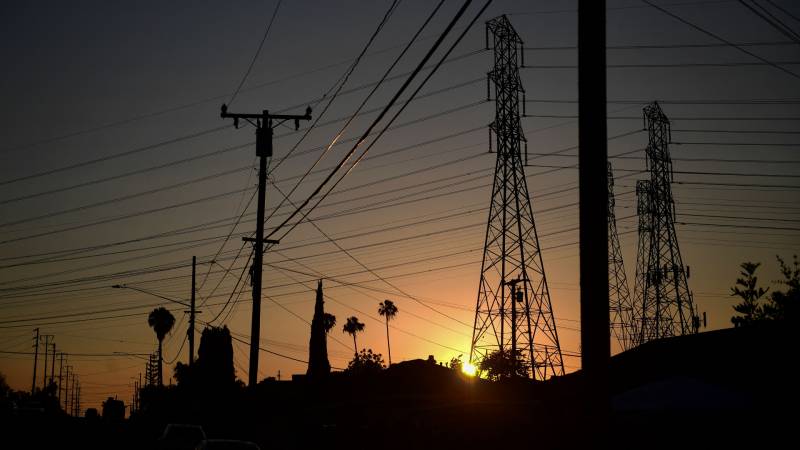Twenty years ago, California went dark. Without enough electricity to power the state, rolling blackouts shut down businesses, PG&E filed for bankruptcy, the state’s economy contracted and then-Governor Gray Davis’ administration spiraled into crisis. Part of the blame rested with Enron Corporation, an energy company whose brokers created an artificial electricity shortage by taking power plants offline — thereby raising prices by 800% or more. Enron ultimately unravelled when whistleblowers revealed its books were cooked, but not before the company severely damaged energy markets. Two decades later, Forum asks what we’ve learned from that calamity— and whether our electricity supply is safe from market manipulation.
20 Years After Enron and Rolling Blackouts, What Have We Learned?
51:43

The sun sets behind power lines in Rosemead, California on June 14, 2021, amid an early season heatwave across much of California. (FREDERIC J. BROWN/AFP via Getty Images)
Guests:
Loretta Lynch, former president of the California Public Utilities Commission. <br />
Steve Weissman, lecturer, Goldman School of Public Policy at UC Berkeley and former Director of Berkeley Law's Energy Program. He directed the CPUC's initial investigation into the 2001 energy crisis. <br />
Rebecca Smith, energy reporter, Wall Street Journal, and Pulitzer Prize finalist for her coverage of the 2001 electricity crisis.
Gray Davis, former governor of California
Sponsored